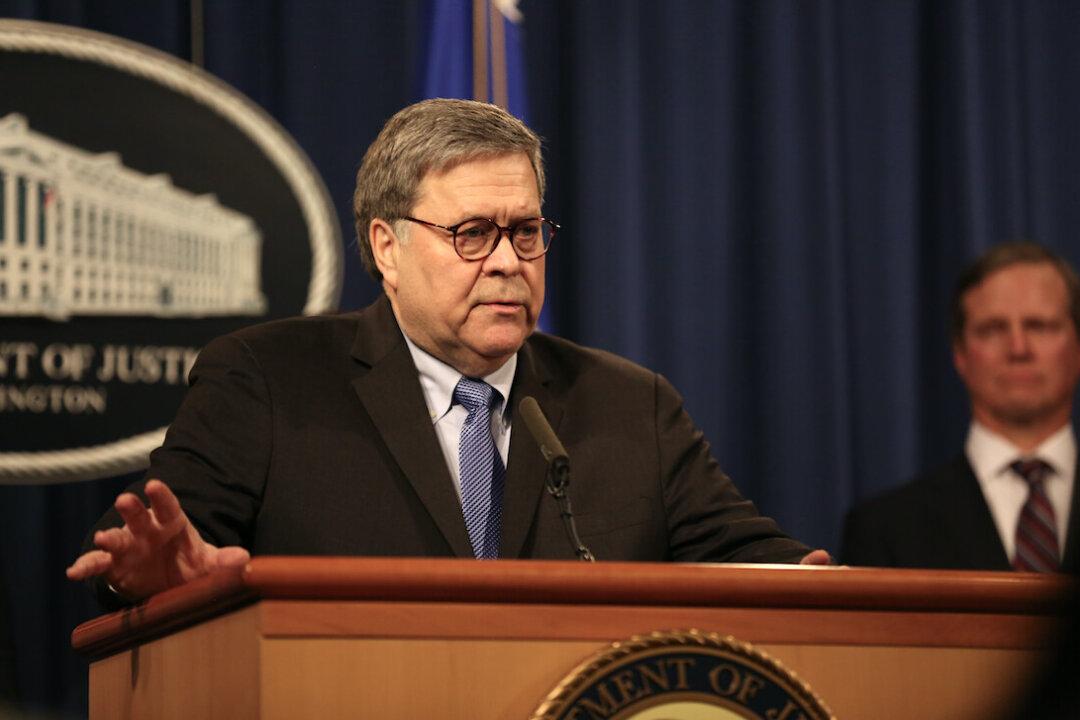NEW YORK—Attorney General William Barr met with a small group of Jewish leaders in the Borough Park neighborhood of Brooklyn, New York, to address the recent spate of anti-Semitic attacks across the New York metropolitan area and how the Department of Justice (DOJ) is combating it.
Barr—who spoke to a group of about two dozen people at the Borough Park Jewish Community Council on Jan. 28—pledged to crack down on anti-Semitic crimes at the federal level, as he announced new measures for Jewish residents to report hate crimes. He said the DOJ will pursue anti-Semitic crimes more aggressively.





